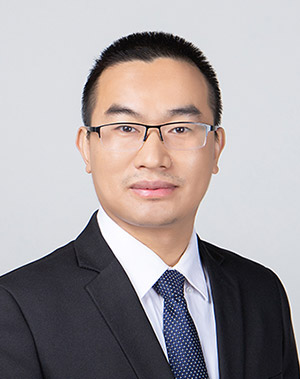
Mathematics & physics

Yan-Qing Ma, Born in December 1983 in Shiyan City, Hubei Province, is a Boya distinguished professor at the School of Physics, Peking University. He graduated with a bachelor's degree from Wuhan University in 2006 and obtained his Ph.D. from Peking University in 2011. From 2011 to 2015, he conducted postdoctoral research at the Brookhaven National Laboratory and the University of Maryland in the United States. Since 2015, he has been working at Peking University as a faculty. In 2023, he was awarded funding from The National Science Fund for Distinguished Young Scholars. He currently serves as the convener of quarkonium production theory of the international Quarkonium Working Group.
He has made breakthrough research achievements in multiple research directions, such as heavy quarkonium physics, the non-perturbative quantum field theory and the perturbative quantum field theory. He has published more than 60 papers, including 12 in the top journal Physical Review Letters. His current research interests include quantum field theory methods, precise tests of the standard model, color confinement and hadronization mechanisms, and artificial intelligence for discovering natural laws.
The study of Feynman integrals advances the development of particle physics
Quantum field theory plays an important role in various fields such as particle physics, nuclear physics, condensed matter physics, and astrophysics. It is expected to cross more disciplines and have unimaginable effects in the future. The contributions of tree diagrams and one-loop diagrams in quantum field theory could be systematically calculated more than forty years ago. However, the systematic calculation of multi-loop diagrams has not been achieved, mainly due to the challenging nature of computing multi-loop Feynman integrals.
The research group led by Yan-Qing Ma began studying this problem in 2015. After seven years of exploration, they finally proposed a systematic solution to this problem. They first introduced the auxiliary mass flow method, which simplifies the very difficult general Feynman integral calculation problem into solving a system of linear equations and calculating vacuum Feynman integrals. Then, they proposed a way for reducing the number of loops, which allows vacuum Feynman integrals to be recursively calculated within the auxiliary mass flow framework. Eventually, the general Feynman integral calculation problem was transformed into a linear algebra problem that can be systematically solved.
In 2022, Science published a lengthy feature on this work, praising the approach as “It’s surprising that [the method] works so well,”“In principle, it’s absolutely general, so you can treat any Feynman integral with it.” This achievement completes the last piece of the puzzle required for the fully automated perturbative calculation of quantum field theory to any order. The proposed method and the corresponding developed program have been widely used for the perturbative calculation of quantum field theory in the forefront of particle physics issues. It has raised the precision of theoretical predictions to a new level, providing crucial theoretical support for the precise test of the particle physics standard model theory and the detection of new physics signals beyond the standard model.